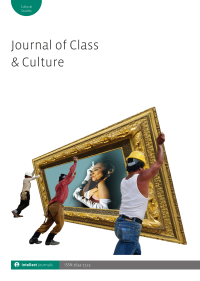
Full text loading...

Police and crime dramas are one of the most popular forms of TV entertainment in Britain. I first show that over the course of the past few decades, policing and surveillance has become more invasive than ever before. These phenomena are strongly tied to new forms of neo-liberalism and capitalism that encourage increasingly individualistic and fragmented societies. Yet, data shows that trust in the police is high, regardless of class background: Why might this be? I turn to depictions of surveillance and policing in British crime drama, in particular, the recently highly acclaimed Happy Valley. Whilst a well-written, heart-warming and satisfying TV series, I point to several themes that illustrate how British neo-liberal societal decay, policing and surveillance culture might be apparent. Police are presented as capable of filling the void left by the neo-liberal decimation of public services and the accompanying loneliness of intense individualism in poorer towns and cities.

Article metrics loading...

Full text loading...
References


Data & Media loading...

Publication Date:
https://doi.org/10.1386/jclc_00037_1 Published content will be available immediately after check-out or when it is released in case of a pre-order. Please make sure to be logged in to see all available purchase options.